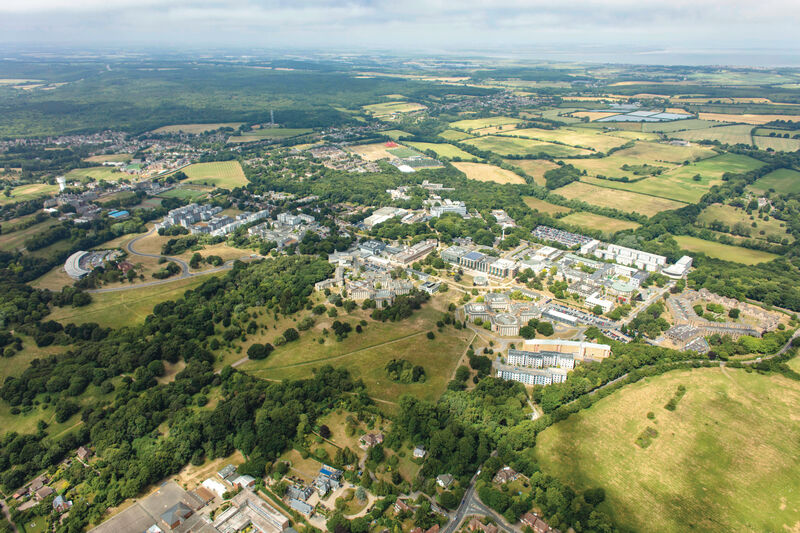
Kent is set to cut emissions by 50% through a new carbon reduction strategy developed in partnership with technology company Siemens.
Developed following a detailed audit of our energy performance, the strategy sets out a roadmap to reduce carbon emissions across our Canterbury and Medway campuses.
The first major step towards the reduction of energy consumption on campus will see the installation of LED lighting in all buildings and upgrades to building management system controllers (which control heating, lighting, security systems), as well as space optimisation and an updated metering system to optimise energy use across our estate.
The plan also outlines an ambition to install solar panels which will generate more than 675,000kWh electricity annually – enough to power over 7,708 LED bulbs for a whole year. All of the zero-carbon energy generated on site will be used by the University.
The partnership aligns with our ambitious yet achievable target of reducing scope 1 and 2 greenhouse gas emissions to net zero by 2040 and scope 3 emissions to net zero by 2050. We aim to reduce emissions by at least 50% by 2030 compared to the baseline year of 2018/19.
This is just one of a number of the ways in which we are working to become more sustainable. This year alone, we have saved over 636 tonnes of furniture via the Warp-it scheme, switched to a carbon-neutral shuttle service and published a Sustainable Food Plan setting out our plant-forward approach towards more sustainable, affordable, and delicious food on campus. We have also been recognised for the positive action we are taking to restore our green spaces through projects such as the River of Vegetation and the Kent Community Oasis Garden.
Professor Georgina Randsley de Moura, Interim Vice Chancellor and President added: ‘Our partnership with Siemens is central to our commitment to embed carbon reduction across our operations and place sustainability at the heart of our decision making. We have unique strengths as a university in tackling climate change and are determined to bring together the talent and endeavour of staff, students and the wider community to make a tangible impact. This includes developing an estate which is fit for the future, embracing modern technology and external partnerships where they can act as a catalyst to delivering our mission.’
Andrew Smyth, Head of Sustainability, SI-Buildings GB&I, Siemens UK and Ireland, said: ‘Decarbonising large estates represents a huge challenge for the higher education sector, and this type of collaboration will be vital in supporting institutions across the UK in achieving net zero. Our strategic plan puts the University on a path to eliminating emissions while reducing fixed costs, improving energy demand management and updating ageing infrastructure through digital transformation. This will not only reshape the University’s relationship with its campus estate but will form the basis of its efforts to achieve net zero through innovation and sustainable investment. We look forward to continuing to support the organisation on this journey in the years ahead.’